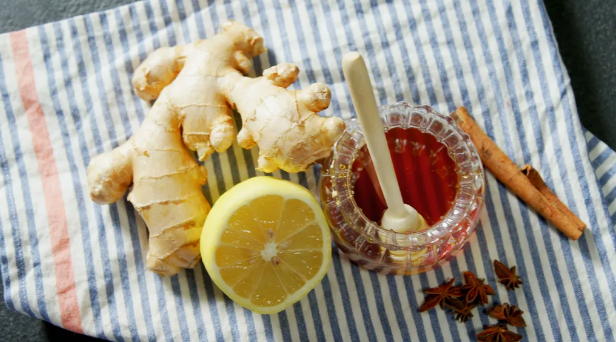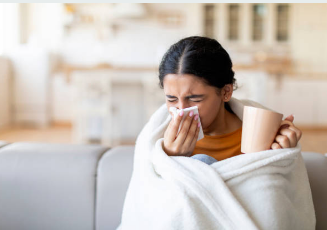Home remedies for viral infection are very important to decrease the virus symptoms.
A viral infection is an illness caused by microscopic organisms called viruses, they use your cells to multiply.
Though viruses can infect most other parts of your body, they typically cause respiratory and digestive illness.
 What are the symptoms of viral infection?
What are the symptoms of viral infection?
Symptoms of a viral infection depend on where you’re infected, but some common ones include:
Flu-like symptoms include fatigue, headaches, and body aches.
Upper respiratory symptoms include sore throat, cough, and sneezing.
Digestive symptoms include nausea, vomiting, and diarrhea.
Skin conditions like rashes, sores, blisters, warts.
How do you get a viral infection?
Typical routes of viral infection include:
From other individuals via close contact, sneezing, or coughing.
From items or surfaces such as phones, doorknobs, and countertops that a person infected with the virus has touched.
From drinking tainted water or consuming contaminated food.
From a tick, mosquito, or animal bite that is infected. through consuming tainted food or drinking tainted water. Home remedies for viral infection
Home remedies for viral infection
To treat symptoms of viral infections we can do a lot of home remedies like:
1. Honey
Due to its antimicrobial qualities, honey may be able to combat certain viruses and bacteria.
To relieve a cough or sore throat, people can add some honey to hot water.
Vitamin C and additional flavor are provided by adding lemon.
2. Echinacea
Herbal extracts derived from the echinacea plant are used by some people to treat nasal symptoms and prevent colds.
According to research trusted sources, some echinacea components may help the immune system.
Some may combat flu viruses because they possess antiviral qualities.
3. Garlic
Garlic is a traditional home cure for colds and flu.
Due to its antiviral and antibacterial qualities, garlic may aid in the prevention of the common cold.
Raw garlic can be consumed, cooked garlic can be added to food, or supplements can be taken.
It is generally safe to use unless someone has a severe allergy to garlic.
4. Oregano oil
Thymol and carvacrol, are two compounds found in oregano, they have antibacterial properties.
Essential oils with thymol have long been used by people to treat coughs, diarrhea, and headaches.
Consuming oregano oil or applying it topically to the chest relieves cold symptoms.
5. Probiotics
Live bacteria, or probiotics, benefit gut health, they may help shield against the flu and colds.
Probiotic supplements are available online and in health food stores.
Probiotics can also be found in a variety of foods, such as yogurt, pickles, miso, and tempeh.
6. Ginseng
Ginseng may help lessen the symptoms of the common cold and flu, it can be taken as a tea, capsule, or raw.
7. Berries
Polyphenols found in berries have antiviral qualities, they may aid in the fight against flu viruses.
Blackberries, raspberries, blueberries, and strawberries are additional excellent sources of vitamin C, which can boost immunity.
8. Vitamin C
Maintaining the health of the immune system depends on vitamin C.
Many people think it might help lower the number of colds that occur.
Avocados and citrus fruits are rich sources of vitamin C.
Additionally, vitamin C supplements are available in pharmacies.
9. Zinc
This mineral can reduce the time of flu-like symptoms.
We can use it in different formulations present in the pharmacy.
And in different types of foods such as meat, whole grains, and seafood.
 Home remedies for running nose
Home remedies for running nose
Nasal Wash
We can use nasal irrigation with saline, which we can buy from the pharmacy to clean the nose and prevent congestion of the nose.
Steam
It is very important to clean the nose and drain the mucus.
We must breathe in steam 3 or 4 times to open the congested nose and drain excess mucus.
We can get steam through a warm bath or vapor of warm soups.
Decongestants
We can use a lot of over-the-counter drugs which are available at all homes.
Due to viral infection, the blood vessels of the nose are swollen and we can't breathe easily so we need to take decongestants.
It is useful to reduce the swelling of blood vessels in the nose and can breathe easier.
Peppermint
It is a herb that acts as a natural decongestant, it is a common ingredient in vapor rubs.
We can use it alone or with a cup of tea 3 or 4 times a day, as it has antibacterial and analgesic properties.
Additionally, menthol can be added to hot water to create a steam inhalation.
What should you do with viral infection?
Don't do a usual routine and activities such as work or go to school.
The body needs rest to fight infection so we must get rest and cancel a lot of activities until we get better.
Sleep well due to being awake for long periods prevents the immune system from working well and fighting infection to get well.
Don't take antibiotics, antibiotics fight bacteria, not viral infections as there is a difference between viral and bacterial infection.
Drink enough water and fluids due to sore throat.
The body needs to be hydrated due to fever and thinning the mucus to prevent congestion.
Don't skip meals due to loss of appetite because it is a bad mistake.
Food supplies the body with energy which is very important to fight infection and activate the immune system.
When must we visit the doctor?
Patients should consult a physician if, after ten days, their symptoms do not improve.
If they experience any unusual or severe symptoms such as high temperature which does not decrease with any methods.
Increased coughing, can't take a breath, and coughing blood.
Summary
Symptoms of viral infection are very bad and affect the quality of life of the patients.
By using some home remedies, resting, and staying cool.
By taking some over-the-counter drugs we can reduce a lot of symptoms and get better faster.


You must be logged in to post a comment.